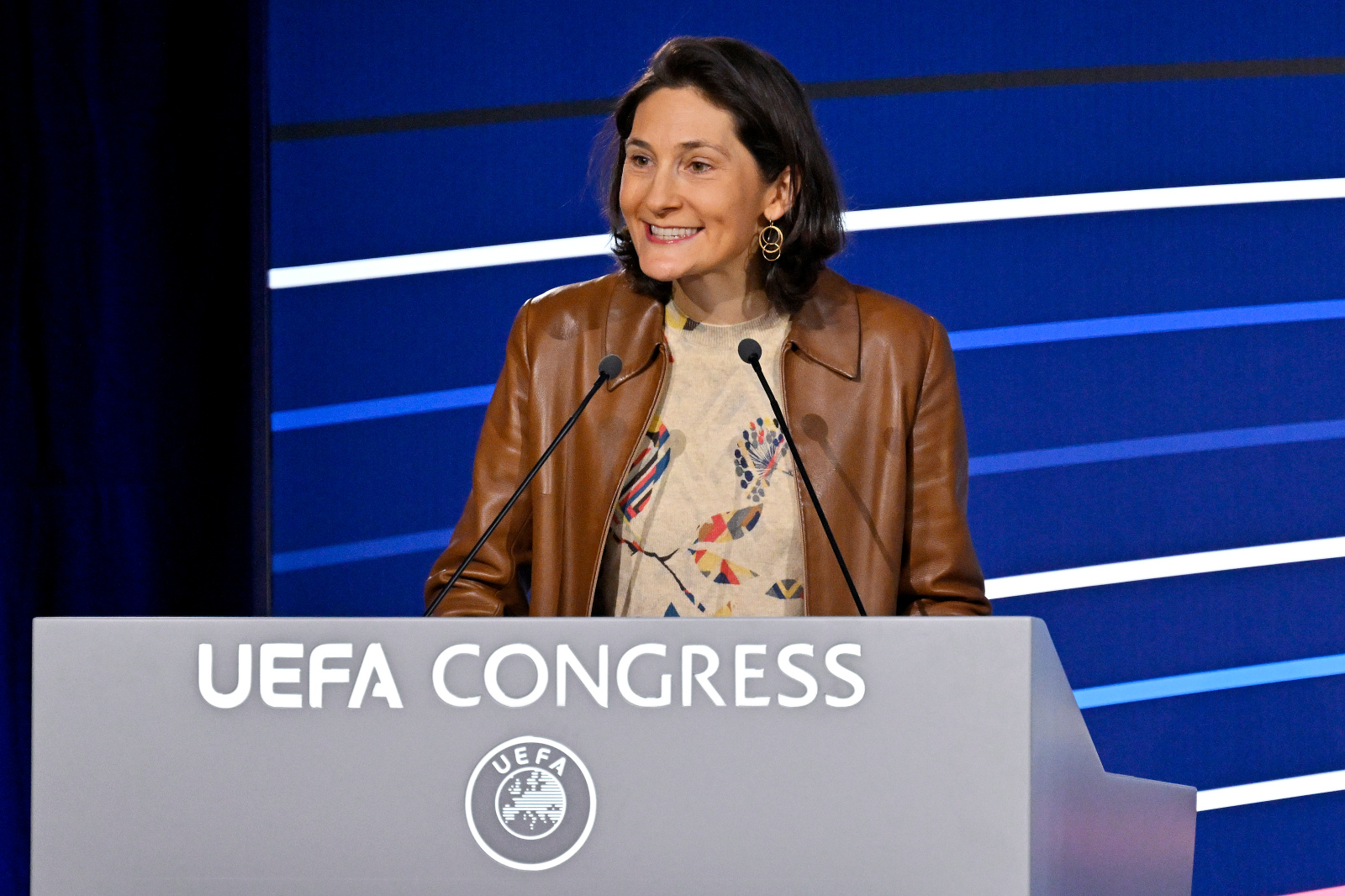Aleksander Ceferin sprang a press conference surprise after UEFA’s annual congress in Paris by revealing that he will not stand for re-election in 2027. He did so, bizarrely, after having obtained a green light from congress to continue at the head of the European football federation, if he so wished, into the next decade.
UEFA’s rules, as they stood previously, had created uncertainty over what constituted the regulatory three-term limit. Congress decided, with only one contrary vote from England, that its presidential election rules should fall into line with those of world governing body FIFA.
That meant Ceferin could have stood for re-election in three years’ time. He had other ideas, known only to close associates and his family.
SURPRISE DECISION
Congress had no idea, when it voted, of Ceferin’s intention to signal an end to his reign.
The Slovene lawyer had been elected in 2016 after the suspension from international football of Michel Platini by FIFA following a payments scandal.
Ceferin’s further election in 2019 has now been confirmed as the start of his formal first full term. He was then re-elected last year and now could, theoretically, stand again in 2027.
Instead Ceferin, after congress, told a press conference:
“Honestly I’m tired after Covid, two wars, nonsense projects of a super league . . . I decided six months ago that I am not running in 2027, mainly because I was away from my family for seven years and will be away for another three.”
Thus Ceferin will not keep pace with Gianni Infantino, the world governing body president, who also stepped up in 2016 and has the same apparently clear run through via 2017 to 2031. Concern over a perception of Infantino’s increasingly autocratic rule in Zurich had sparked concern over Ceferin’s pursuit of a similar elective path.
Zvonimir Boban, the former Croatia captain, had quit as UEFA football director last month in protest at Ceferin’s apparent pursuit of a term extension. No-one else had followed Boban’s lead and he was denounced, by Ceferin at the press conference, for his “whining”.
MIXED LEGACY
The debate about term limits will now be succeeded by reflections on Ceferin’s eventual legacy.
This will include not only UEFA’s successful negotiation of the pandemic and ever-improving finances but also how it was perceived to have dealt with the then Spanish FA president Luis Rubiales over the Women’s World Cup ‘kiss’, the exclusion of Russia as well as cup finals crowd chaos in both London and Paris.
Ceferin’s earlier address to congress stressed the importance of maintaining unity within UEFA in support of the European sports model in view of the uncertain political climate. Chief among the disruptive threats, for Ceferin, was the European Super League though he refused then to refer to it by name.
He said: “I think the European sports model is a shining example of European unity. Some people are trying to trample on 70 years of [UEFA] history to change this European sports model despite its success. They are claiming to be in favour of football while in reality they are trying to dig its grave.
“They are predators, confusing monopoly with unity, confusing handouts and solidarity. They speak about free markets but don’t say anything about free speech.”
‘DIFFICULT TIMES’
Ceferin, widening his area of international concern, added:
“Never before has our continent appeared to fragile, so fractured. We live in difficult times but there is strength in unity and unity is the only thing that can save us – right down to the humble football pitch.”
The UEFA president switched to positivity in looking ahead to a “festive, joyful and friendly” UEFA Euro, the expanded format of the club competitions, UEFA’s increased community support investment and a growth of the women’s game “far beyond anyone’s expectations.”
Ceferin even hailed a co-operative “modus operandi to start a new chapter” of UEFA’s relationship with FIFA. Obviously, in the long term, this will have to be with a new president.
UEFA Congress statement:
UEFA Statutes amended to include a minimum of two women on the UEFA Executive Committee — new members to the UEFA Executive Committee ratified
The 48th Ordinary UEFA Congress was held today at La Maison de La Mutualité in Paris and took a series of decisions as follows:
Amendments to the UEFA Statutes: All amendments to the UEFA Statutes that were proposed were approved, including a provision to have at least two female members on the UEFA Executive Committee.
Activity Reports and financial matters: The Report of the UEFA President and Executive Committee and Report of the UEFA Administration 2022/23 were approved and so were the financial statements 2022/23 and the 2024/25 budget.
Ratification of new members
New members of the UEFA Executive Committee were ratified as follows:
European Club Association ECA (two representatives for a four-year term): Nasser Al-Khelaifi (Paris Saint-Germain), Miguel Ángel Gil Marín (Club Atlético de Madrid) — European Leagues EL (one representative for a one-year term): Pedro Proença (Liga Portugal)
Furthermore, the composition of the UEFA Organs for the Administration of Justice and of the UEFA Governance and Compliance Committee were also ratified.
Next Ordinary UEFA Congress: April 3, 2025 in Belgrade.
Credit: AIPS Media



